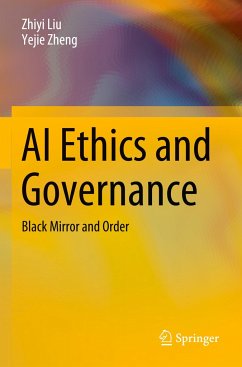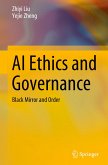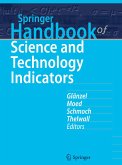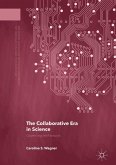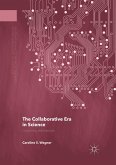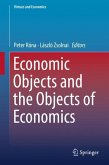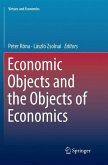This book deeply analyzes the theoretical roots of the development of global artificial intelligence ethics and AI governance, the ethical issues in AI application scenarios, and the discussion of artificial intelligence governance issues from a global perspective. From the perspective of knowledge, the book includes not only the metaphysical research of traditional Western ethics, but also the interpretation of AI-related practical cases and international policies. The purpose of this book is not only to study AI ethics and governance issues academically, but to seek a path to solve problems in the real world. It is a very meaningful monograph in both academic theory and reality. This book responds to the implementation of China's digital economy governance and other topics. It is a cutting-edge academic monograph that combines industry, policy, and thought.
In this book, the author not only discusses the humanities thoughts such as ethics, political economy, philosophy, andsociology, but also involves computer science, biology, and medicine and other science and engineering disciplines, effectively using interdisciplinary thinking as readers clarify how to explore ethical consensus and establish smart social governance rules in the era of artificial intelligence, so as to provide the most comprehensive and unique scientific and technological insights for smart economy participants, related practitioners in the artificial intelligence industry, and government policy makers. For academia, this is a representative book of Chinese scholars' systematic thinking on AI ethical propositions from a global perspective. For the industry, this is a book that understands the policies and ethical propositions faced by the development of AI industry. An important reference book, for policy makers, this is a monograph for understanding how policies in the AI industry make decisions that conform to AI industry practices and people's moral order.
In this book, the author not only discusses the humanities thoughts such as ethics, political economy, philosophy, andsociology, but also involves computer science, biology, and medicine and other science and engineering disciplines, effectively using interdisciplinary thinking as readers clarify how to explore ethical consensus and establish smart social governance rules in the era of artificial intelligence, so as to provide the most comprehensive and unique scientific and technological insights for smart economy participants, related practitioners in the artificial intelligence industry, and government policy makers. For academia, this is a representative book of Chinese scholars' systematic thinking on AI ethical propositions from a global perspective. For the industry, this is a book that understands the policies and ethical propositions faced by the development of AI industry. An important reference book, for policy makers, this is a monograph for understanding how policies in the AI industry make decisions that conform to AI industry practices and people's moral order.

